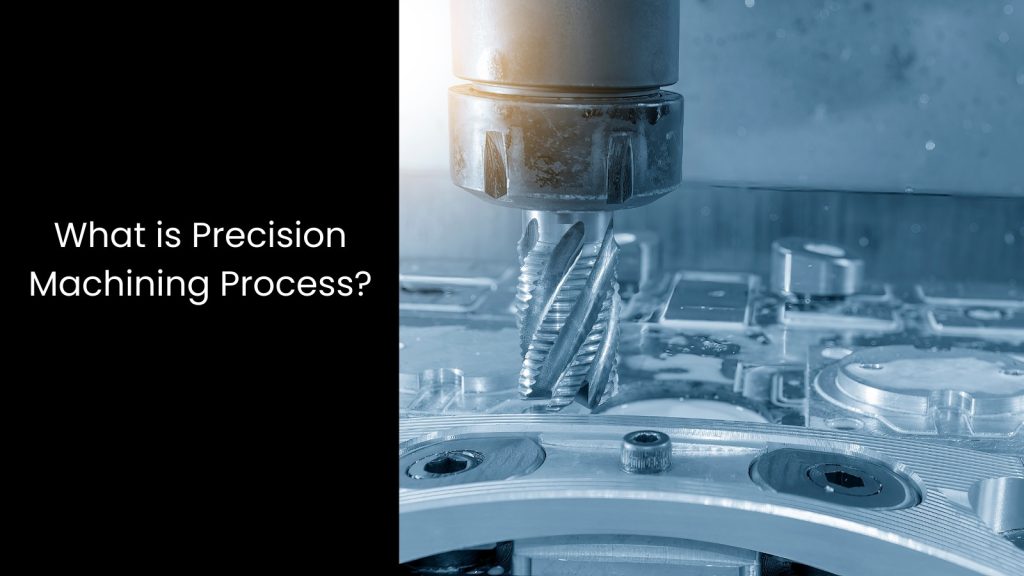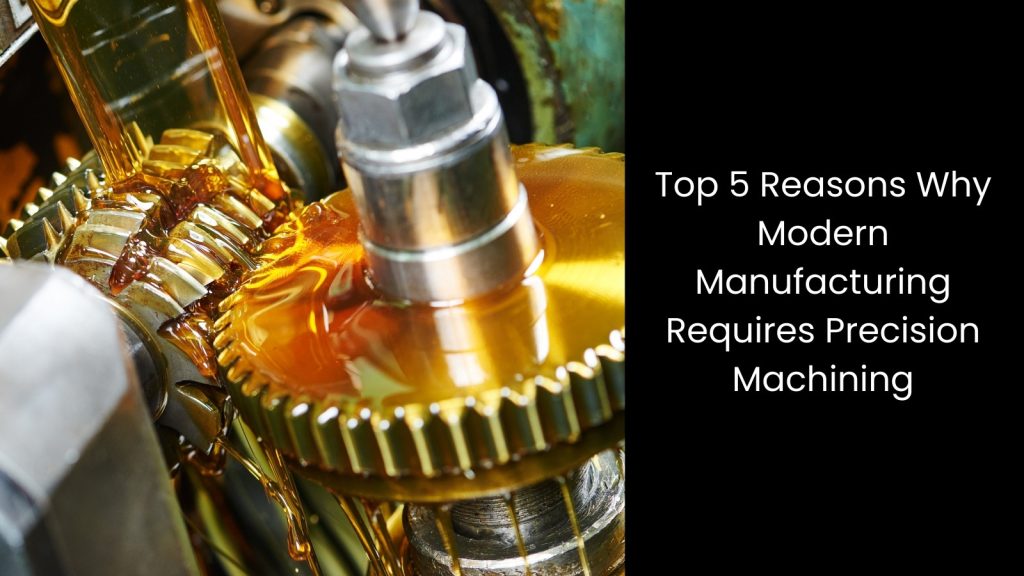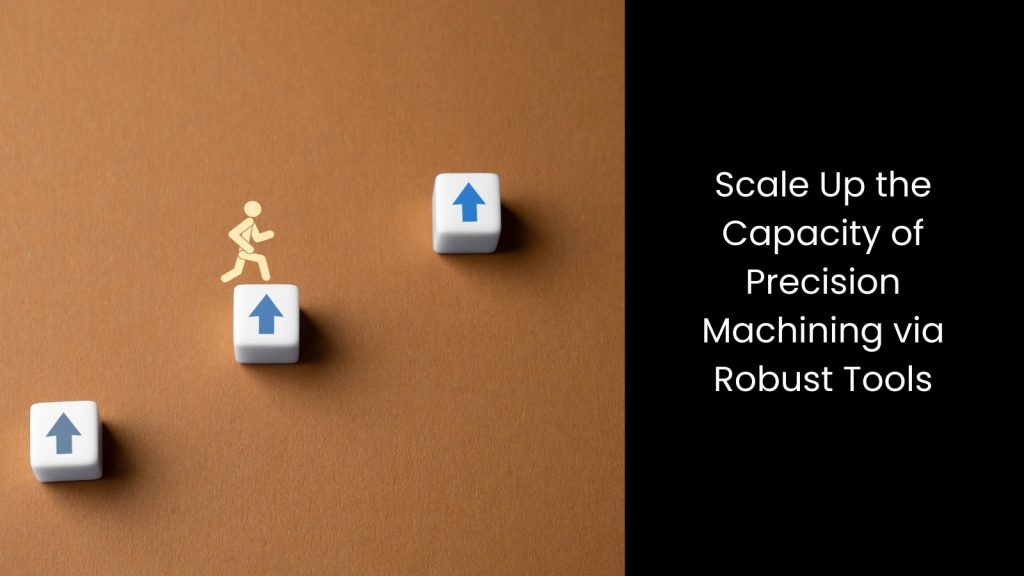Did you know precision machining can significantly impact manufacturing efficiency and product quality? In today’s fast-paced industrial landscape, precision machining plays a key role in meeting the high standards and complex demands of modern manufacturing. Whether you are producing aerospace components, medical devices, or automotive parts, achieving tight tolerances and intricate designs is essential. But it is not just about accuracy; precision machining reduces material waste, minimises errors, and boosts overall productivity. As manufacturers, staying competitive means embracing the tools and techniques to ensure every product is perfectly crafted.
This article delves into the importance of Precision Machining for modern manufacturing.
This article delves into the importance of Precision Machining for modern manufacturing.
What is Precision Machining Process?

- Precision machining is a manufacturing process of removing material from a workpiece with extreme accuracy to create components that meet exact specifications.
- Manufacturers use advanced tools like CNC machines, grinders, and lathes to achieve precise dimensions, tight tolerances, and smooth finishes. This method allows industries such as aerospace, automotive, and medical to produce complex parts with high durability and reliability.
- Precision machining enhances efficiency by minimising material waste and ensuring consistent quality across production. It supports various materials, including metals, plastics, and composites, catering to diverse industrial needs. The process also enables manufacturers to create intricate designs that traditional methods cannot replicate, ensuring high customisation and scalability.
- As modern manufacturing evolves, precision machining takes centre stage in supporting emerging technologies like robotics, IoT devices, and 3D printing, making it indispensable for producing innovative and high-performance components.
Top 5 Reasons Why Modern Manufacturing Requires Precision Machining

Material Versatility
This is the top reason why modern manufacturing relies heavily on precision machining, which offers the ability to work with a diverse range of materials. Precision machining handles metals such as aluminium, titanium, and steel with exceptional accuracy, making it indispensable in aerospace and automotive industries requiring high-performance and lightweight components.
Manufacturers also rely on precision machining to process plastics and composites, enabling the creation of intricate designs for sectors like medical and consumer electronics. This flexibility allows manufacturers to innovate and meet unique demands across industries without compromising quality or efficiency.
In another way, precision machining ensures tight tolerances and smooth finishes, regardless of the material’s hardness, ductility, or thermal properties. The process minimises material waste, reducing costs and supporting sustainable practices. Advanced tools like CNC machines and grinders adapt to varying material characteristics, ensuring consistent performance and reliability in the final product.
Manufacturers also rely on precision machining to process plastics and composites, enabling the creation of intricate designs for sectors like medical and consumer electronics. This flexibility allows manufacturers to innovate and meet unique demands across industries without compromising quality or efficiency.
In another way, precision machining ensures tight tolerances and smooth finishes, regardless of the material’s hardness, ductility, or thermal properties. The process minimises material waste, reducing costs and supporting sustainable practices. Advanced tools like CNC machines and grinders adapt to varying material characteristics, ensuring consistent performance and reliability in the final product.
Complex Designs
The latter drives the need for precision machining in modern manufacturing, as industries increasingly demand intricate components that traditional methods cannot achieve.
Precision machining delivers the high accuracy and tight tolerances required to produce these advanced designs, enabling manufacturers to meet exact specifications without errors. Sectors like aerospace, medical, and electronics rely on these capabilities to create parts such as turbine blades, surgical instruments, and microchips, where even minor inaccuracies can compromise functionality.
Also, CNC machines and other precision equipment process complex geometries, sharp angles, and tight curves with unmatched consistency, making them indispensable for creating innovative and highly detailed products. The process supports multi-axis machining, allowing manufacturers to craft designs that involve multiple dimensions and unique contours. This capability not only improves product performance but also reduces the need for assembly, as single, precisely machined components often replace multiple interconnected parts.
Further, precision machining ensures scalability, allowing manufacturers to replicate complex designs in large volumes without quality loss. The technique also accommodates a variety of materials, including metals, plastics, and composites, broadening its application across diverse industries.
Precision machining delivers the high accuracy and tight tolerances required to produce these advanced designs, enabling manufacturers to meet exact specifications without errors. Sectors like aerospace, medical, and electronics rely on these capabilities to create parts such as turbine blades, surgical instruments, and microchips, where even minor inaccuracies can compromise functionality.
Also, CNC machines and other precision equipment process complex geometries, sharp angles, and tight curves with unmatched consistency, making them indispensable for creating innovative and highly detailed products. The process supports multi-axis machining, allowing manufacturers to craft designs that involve multiple dimensions and unique contours. This capability not only improves product performance but also reduces the need for assembly, as single, precisely machined components often replace multiple interconnected parts.
Further, precision machining ensures scalability, allowing manufacturers to replicate complex designs in large volumes without quality loss. The technique also accommodates a variety of materials, including metals, plastics, and composites, broadening its application across diverse industries.
Enhanced Product Quality
Enhanced product quality is a key reason modern manufacturing depends on precision machining, as it ensures parts meet exact specifications with superior accuracy.
Precision machining creates components with tight tolerances and smooth finishes, directly improving product performance and reliability. Manufacturers in aerospace, automotive, and medical industries rely on this process to produce critical parts, such as engine components and medical implants, where precision determines functionality and safety.
This is where precision machining eliminates errors and inconsistencies, resulting in consistent product quality across production batches. Advanced tools like CNC machines achieve high levels of accuracy, allowing manufacturers to meet stringent industry standards and deliver products with a flawless finish. This level of precision reduces material waste, supporting cost-effective manufacturing while maintaining quality.
The process also enhances durability by ensuring components fit perfectly, preventing wear and failure over time. Not to forget that precision machining accommodates a wide range of materials, from metals like aluminium and titanium to plastics and composites, providing manufacturers with flexibility while maintaining high-quality outcomes.
As modern manufacturing faces increasing demand for innovative and high-performance products, precision machining remains critical for achieving exceptional quality, meeting customer expectations, and maintaining competitiveness in global markets.
Precision machining creates components with tight tolerances and smooth finishes, directly improving product performance and reliability. Manufacturers in aerospace, automotive, and medical industries rely on this process to produce critical parts, such as engine components and medical implants, where precision determines functionality and safety.
This is where precision machining eliminates errors and inconsistencies, resulting in consistent product quality across production batches. Advanced tools like CNC machines achieve high levels of accuracy, allowing manufacturers to meet stringent industry standards and deliver products with a flawless finish. This level of precision reduces material waste, supporting cost-effective manufacturing while maintaining quality.
The process also enhances durability by ensuring components fit perfectly, preventing wear and failure over time. Not to forget that precision machining accommodates a wide range of materials, from metals like aluminium and titanium to plastics and composites, providing manufacturers with flexibility while maintaining high-quality outcomes.
As modern manufacturing faces increasing demand for innovative and high-performance products, precision machining remains critical for achieving exceptional quality, meeting customer expectations, and maintaining competitiveness in global markets.
Tight Tolerances
Precision machining achieves exact dimensions and ensures components meet strict specifications, providing the reliability and accuracy these industries demand. Industries such as aerospace rely on this process to manufacture critical parts like turbine blades and fuel systems, where precision directly impacts performance and safety.
Plus, the medical field depends on precision machining to create implants and surgical tools, ensuring they fit perfectly and function flawlessly. Automotive manufacturers use it to produce high-performance engine parts and transmission components that withstand extreme conditions and maintain efficiency.
So, precision machining handles tight tolerances with advanced tools like CNC machines, which provide micro-level accuracy and repeatability across production runs. This capability eliminates inconsistencies, reduces assembly issues, and improves product durability. Tight tolerances allow manufacturers to push design limits, enabling innovation and enhanced functionality.
On the other hand, this process supports diverse materials, from metals to composites, while maintaining these exacting standards. As industries evolve, the demand for precision and reliability grows, making tight tolerances a vital reason for adopting the latter to ensure consistent quality, safety, and performance in complex applications.
Plus, the medical field depends on precision machining to create implants and surgical tools, ensuring they fit perfectly and function flawlessly. Automotive manufacturers use it to produce high-performance engine parts and transmission components that withstand extreme conditions and maintain efficiency.
So, precision machining handles tight tolerances with advanced tools like CNC machines, which provide micro-level accuracy and repeatability across production runs. This capability eliminates inconsistencies, reduces assembly issues, and improves product durability. Tight tolerances allow manufacturers to push design limits, enabling innovation and enhanced functionality.
On the other hand, this process supports diverse materials, from metals to composites, while maintaining these exacting standards. As industries evolve, the demand for precision and reliability grows, making tight tolerances a vital reason for adopting the latter to ensure consistent quality, safety, and performance in complex applications.
Improved Efficiency
This highlights why modern manufacturing depends on precision machining, as it optimises production processes by reducing material waste and minimising errors. It uses advanced tools to create parts with exact specifications, eliminating the need for extensive rework or adjustments. This accuracy not only ensures consistent quality but also accelerates production timelines, enabling manufacturers to meet tight deadlines without sacrificing precision.
The process streamlines operations by automating repetitive tasks and reducing reliance on manual labour, which minimises human errors and boosts productivity. The latter handles a wide range of materials, allowing manufacturers to optimise resource usage and minimise scrap, leading to cost savings and sustainable practices.
Industries like aerospace, automotive, and medical benefit from this efficiency as they produce complex components with tight tolerances in large volumes. The ability to integrate precision machining into automated workflows further enhances its role in saving time and costs, making it a cornerstone for modern manufacturing.
As businesses face growing demand for high-quality and innovative products, precision machining ensures they can deliver superior results efficiently, maintaining a competitive edge while improving sustainability and profitability across diverse applications.
The process streamlines operations by automating repetitive tasks and reducing reliance on manual labour, which minimises human errors and boosts productivity. The latter handles a wide range of materials, allowing manufacturers to optimise resource usage and minimise scrap, leading to cost savings and sustainable practices.
Industries like aerospace, automotive, and medical benefit from this efficiency as they produce complex components with tight tolerances in large volumes. The ability to integrate precision machining into automated workflows further enhances its role in saving time and costs, making it a cornerstone for modern manufacturing.
As businesses face growing demand for high-quality and innovative products, precision machining ensures they can deliver superior results efficiently, maintaining a competitive edge while improving sustainability and profitability across diverse applications.
Cerexio MES for Improved Manufacturing Precision

Cerexio Manufacturing Execution System (MES) powered by Industry 4.0 enhances manufacturing precision with its flexibility to adapt to diverse processes. It integrates IoT and real-time analytics to optimise workflows and monitor production. Our MES ensures consistent quality, adjusts to unique manufacturing requirements, and supports precise execution, enabling efficient and accurate production across various industries and materials.
Scale Up the Capacity of Precision Machining via Robust Tools

Scaling up precision machining capacity is not just about increasing output; it is about deploying advanced tools that elevate precision. With robust equipment, manufacturers can meet rising demands, enhance quality, and embrace innovation. It is time to invest in the tools that will truly make a difference!
